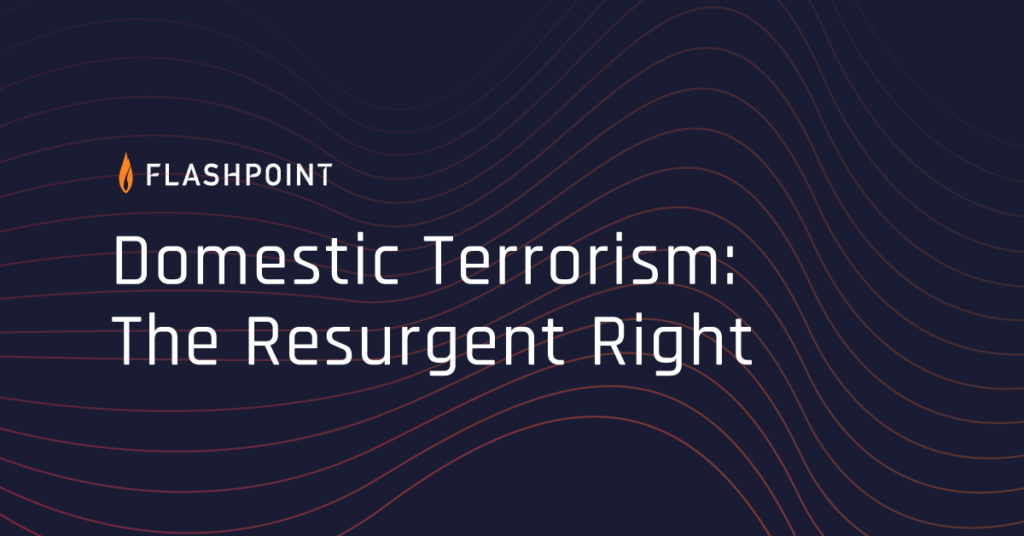Blog
Domestic Terrorism: The Resurgent Right
Since 2014, the United States has witnessed a resurgence in far-right activity, leading to an increase in domestic terrorist attacks and the 2017 Unite the Right rally in Charlottesville, Virginia—the country’s largest gathering of white supremacists in decades. Understanding the underlying ideology that drives the movement and its unique online subculture is crucial to countering far-right extremists.

Since 2014, the United States has witnessed a resurgence in far-right activity, leading to an increase in domestic terrorist attacks and the 2017 Unite the Right rally in Charlottesville, Virginia—the country’s largest gathering of white supremacists in decades. Understanding the underlying ideology that drives the movement and its unique online subculture is crucial to countering far-right extremists. Flashpoint analysts focus on the following primary subgroups within the white supremacy movement:
- Traditional white supremacists
- Neo-Nazis
- Racist skinheads
- White nationalists
- Alt-right
- Accelerationsists
As with many extremist groups, manifestos and attacks play a large role in perpetuating online hate and radicalization. This is often done through the online distribution of manifestos belonging to far-right terrorists that conducted high-profile attacks. Online extremist communities disseminate manifestos through chat services and social media platforms to radicalize and encourage others to conduct subsequent attacks.
In addition, analysts have observed far-right extremists utilizing encrypted chat services, social media platforms, and other methods of communication to coordinate and plot attacks, recruit, and distribute propaganda. Far-right extremists also employ evasion techniques to avoid detection by using coded terms and references, memes, and icons in their communications. More recently, analysts observed proponents of the boogaloo movement using platforms like TikTok to promote their ideology and reach a broader demographic. Analysts assess with moderate to high confidence that far-right extremists will continue to use these methods to gain new recruits and further their agenda.
If you’re interested in learning more about this topic, please register for the July 30 webinar or reach out to [email protected].

